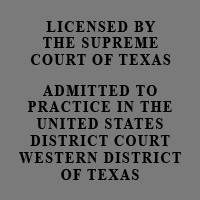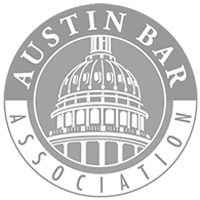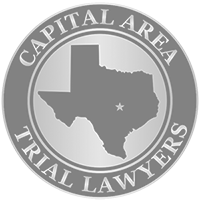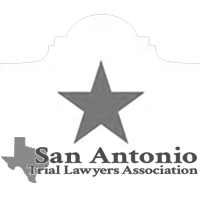Deratives Market Fraud Lawyer, Over-The-Counter Deratives Fraud Lawyer, and Derative Security-Based Swaps Fraud Lawyer Handles Derivates Market Lawsuits Including Bounty Actions That Pay Large Financial Rewards to Professionals and Investors Who Anonymously Expose Large Scale Financial Derative Fraud Schemes by Texas Deratives Market Fraud Lawyer, OTC Deratives Fraud Lawyer, and Derative Security-Based Swaps Fraud Lawyer Jason Coomer
Deratives Market Fraud Lawyer, Over-The-Counter Deratives Fraud Lawyer, and Derative Security Based Swaps Fraud Lawyer handles derivates market lawsuits including bounty actions that pay large financial rewards to financial professionals and investors who anonymously expose large scale financial derative fraud schemes. Attorney, Jason S. Coomer, commonly works with financial professionals and high end investors who want to collect large financial rewards for anonymously or confidentially exposing large scale financial fraud in the Deratives Market. By gathering original information regarding financial fraud schemes and organizing this information into Disclosure Statements, he and his clients are able to expose large scale fraud and help the SEC and CFCT regulate the financial markets.
If you are aware of large scale fraud in the Deratives Market including OTC Deratives Fraud or Exchange-Traded Deratives Fraud, please feel free to contact Deratives Market Fraud Lawyer, Over-The-Counter Deratives Fraud Lawyer, and Derative Securities Fraud Whistleblower Lawyer Jason Coomer via e-mail message or use our submission form about a potential Securities Fraud Whistleblower Lawsuit, Financial Fraud Whistleblower Lawsuit, SEC Violation Whistleblower Action, SEC Whistleblower Incentive Program Action, or other Whistleblower Bounty Action.
Bounty Actions Are The Newest Forms of Whistleblower Reward Lawsuits And Were Created to Indentify Investment Fraud and Securities Fraud: SEC Securities Fraud Whistleblowers and FCTC Fraud Whistleblowers Can Receive Large Rewards For Properly Filing Bounty Actions
The regulation of the OTC derivatives market is divided between the SEC and the CFTC. The SEC regulates security-based swaps while the CFTC regulates swaps. In other word both agencies regulate deratives and the controlling regulating agency depends on the characteristics of the underlying instrument or interest. The dividing line between the categories, however, is not entirely clear. The United States Bounty Action Laws section 21F of the Securities Exchange Act (SEC Whistleblower Bounty Actions), and section 23 of the Commodity Exchange Act (CFTC Whisteblower Bounty Actions). These laws were passed in the wake of Financial Market Melt Down in 2008 and in response to massive fraud in the deratives market . These whistleblower recovery laws are designed to encourage people with specialized knowledge of significant investment fraud, securities fraud, SEC violations, commodity futures fraud, violations of the foreign corrupt practices act, and other financial fraud. These whistleblower reward laws were designed to protect whistleblowers that step up and blow the whistle on financial fraud.
The U.S. Securities and Exchange Commission (SEC) and SEC Whistleblower Incentive Program
The U.S. Securities and Exchange Commission (frequently abbreviated SEC) is a federal agency which holds primary responsibility for enforcing the federal securities laws and regulating the securities industry, the nation's stock and options exchanges, and other electronic securities markets in the United States. The mission of the U.S. Securities and Exchange Commission is to protect investors, maintain fair, orderly, and efficient markets, and facilitate capital formation.
The SEC was created in 1934 and enforces the Securities Act of 1933, the Trust Indenture Act of 1939, the Investment Company Act of 1940, the Investment Advisers Act of 1940, the Sarbanes-Oxley Act of 2002 and other statutes. The SEC was created by section 4 of the Securities Exchange Act of 1934 (now codified as 15 U.S.C. § 78d and commonly referred to as the 1934 Act).
The laws and rules that govern the securities industry in the United States derive from a simple and straightforward concept: all investors, whether large institutions or private individuals, should have access to certain basic facts about an investment prior to buying it, and so long as they hold it. To achieve this, the SEC requires public companies to disclose meaningful financial and other information to the public. This provides a common pool of knowledge for all investors to use to judge for themselves whether to buy, sell, or hold a particular security. Only through the steady flow of timely, comprehensive, and accurate information can people make sound investment decisions.
The SEC is responsible for administering eight major laws that govern the securities industry. They are: the Securities Act of 1933, the Securities Exchange Act of 1934, the Trust Indenture Act of 1939, the Investment Company Act of 1940, the Investment Advisers Act of 1940, the Sarbanes-Oxley Act of 2002, the Credit Rating Agency Reform Act of 2006, and the Dodd-Frank Wall Street Reform and Consumer Protection Act.
The enforcement authority given to the SEC by Congress allows it to bring civil enforcement actions against individuals or companies alleged to have violated securities law or committed securities fraud including committing accounting fraud, providing false information, or engaging in insider trading.
The SEC oversees the key participants in the securities world, including securities exchanges, securities brokers and dealers, investment advisors, and mutual funds. Here the SEC is concerned primarily with promoting the disclosure of important market-related information, maintaining fair dealing, and protecting against fraud. Crucial to the SEC's effectiveness in each of these areas is its enforcement authority. Each year the SEC brings hundreds of civil enforcement actions against individuals and companies for violation of the securities laws. Typical infractions include insider trading, accounting fraud, and providing false or misleading information about securities and the companies that issue them.
One of the major sources of information on which the SEC relies to bring enforcement action is investors themselves — another reason that educated and careful investors are so critical to the functioning of efficient markets. To help support investor education, the SEC offers the public a wealth of educational information on this Internet website, which also includes the EDGAR database of disclosure documents that public companies are required to file with the Commission. Though it is the primary overseer and regulator of the U.S. securities markets, the SEC works closely with many other institutions, including Congress, other federal departments and agencies, the self-regulatory organizations (e.g. the stock exchanges), state securities regulators, and various private sector organizations. In particular, the Chairman of the SEC, together with the Chairman of the Federal Reserve, the Secretary of the Treasury, and the Chairman of the Commodity Futures Trading Commission, serves as a member of the President's Working Group on Financial Markets.
In July 2010, the Dodd-Frank Wall Street Reform and Consumer Protection Act was signed into law which includes significant new financial fraud bounty whistleblower provisions. These provisions create economic incentives for SEC violation whistleblowers and other financial fraud whistleblowers with "original information" of SEC violations and financial fraud to blow the on large scale financial fraud and SEC violations.
These SEC bounty claims must be brought voluntarily under the SEC Bounty Programs by one or more individuals. The whistleblower or whistleblowers must be a natural person or natural persons, companies or other entity is not eligible to be financial fraud bounty whistleblowers. Successful SEC violation bounty whistleblowers and financial fraud whistleblowers can collect financial rewards for whistleblower bounty actions that result in the imposition of monetary sanctions of greater than $1 million dollars. This new financial fraud SEC bounty program is called the "Securities Whistleblower Incentives and Protection".
Through SEC Whistleblower Bounty Actions the SEC will award between ten percent and thirty percent of the money collected to a qualified whistleblower who voluntarily provides the SEC with original information about a violation of the securities laws that leads to a successful enforcement of an action brought by the SEC that results in monetary sanctions exceeding $1,000,000.00.
So long as the financial fraud whistleblower or financial fraud whistleblowers base their claims on "original information", any person (not just an employee or insider) may file a SEC financial fraud bounty claim. Further, if the financial fraud whistleblower is represented by an attorney, the whistleblower may file the financial fraud bounty claim anonymously. However, before the financial fraud bounty award is paid, the whistleblower's identity shall be revealed to the SEC and SEC shall be provided information about the whistleblower that it requests.
SEC Securities Fraud Whistleblower Lawsuits, Dodd-Frank Act Financial Fraud Whistleblower Bounty Actions, CFTC Commodity Fraud Whistleblower Lawsuits, SEC Whistleblower Incentive Program Claims, Financial Fraud Derivatives Bounty Actions, & Financial Fraud False Claims Act Whistleblower Lawsuits
Financial Fraud Whistleblower Lawsuits, Securities Fraud Whistleblower Lawsuits, Commodity Fraud Whistleblower Lawsuits, Stimulus Fraud Whistleblower Lawsuits, and SEC Violation Whistleblower Lawsuits will become more common with the enactment of laws like the Dodd-Frank Wall Street Reform and Consumer Protection Act that create bounties that can be collected by whistleblowers that properly report SEC violations, financial fraud, securities fraud, commodities fraud, and stimulus fraud that result in monetary sanctions over one million dollars ($1,000,000.00). The SEC can award the whistleblower up to 30% of the money collected.
SEC fines like the $550 million dollar fine that Goldman Sachs agreed to pay in 2010 to settle a civil suit over a package of mortgage-backed securities designed by a hedge fund which was shorting the housing market, $50 million dollar SEC fine of GE for accounting misdeeds when General Electric broke rules and defrauded investors, and the SEC fines to Citigroup Inc. and Putnam Investments for $20 million and $40 million, for alleged concealing from customers the fact that brokers were paid to recommend certain mutual funds, creating a conflict of interest are examples of financial fraud that Congress is hoping financial fraud whistleblowers will come forward and expose.
By creating whistleblower bounties for investors and people with specific information of financial fraud, it is expected that hard to detect financial fraud including derivative market fraud and investment fraud will be exposed to help regulate the financial market and prevent large investment corporations, banks, hedge funds, and other large corporations from committing financial fraud of billions of dollars.
Organization of the U.S. Securities and Exchange Commission (SEC)
Monitoring the securities industry requires a highly coordinated effort. Congress established the Securities and Exchange Commission in 1934 to enforce the newly-passed securities laws, to promote stability in the markets and, most importantly, to protect investors.
The SEC consists of five presidentially-appointed Commissioners, with staggered five-year terms (see SEC Organization Chart; text version also available). One of them is designated by the President as Chairman of the Commission — the agency's chief executive. By law, no more than three of the Commissioners may belong to the same political party, ensuring non-partisanship. The agency's functional responsibilities are organized into five Divisions and 16 Offices, each of which is headquartered in Washington, DC. The Commission's approximately 3,500 staff are located in Washington and in 11 Regional Offices throughout the country.
It is the responsibility of the SEC to:
-
interpret federal securities laws;
-
issue new rules and amend existing rules;
-
oversee the inspection of securities firms, brokers, investment advisers, and ratings agencies;
-
oversee private regulatory organizations in the securities, accounting, and auditing fields; and
-
coordinate U.S. securities regulation with federal, state, and foreign authorities.
The Division of Corporation Finance reviews documents that publicly-held companies are required to file with the Commission. The documents include:
-
registration statements for newly-offered securities;
-
annual and quarterly filings (Forms 10-K and 10-Q);
-
proxy materials sent to shareholders before an annual meeting;
-
annual reports to shareholders;
-
documents concerning tender offers (a tender offer is an offer to buy a large number of shares of a corporation, usually at a premium above the current market price); and
-
filings related to mergers and acquisitions.
These documents disclose information about the companies' financial condition and business practices to help investors make informed investment decisions. Through the Division's review process, the staff checks to see if publicly-held companies are meeting their disclosure requirements and seeks to improve the quality of the disclosure. To meet the SEC's requirements for disclosure, a company issuing securities or whose securities are publicly traded must make available all information, whether it is positive or negative, that might be relevant to an investor's decision to buy, sell, or hold the security.
Corporation Finance provides administrative interpretations of the Securities Act of 1933, the Securities Exchange Act of 1934, and the Trust Indenture Act of 1939, and recommends regulations to implement these statutes. Working closely with the Office of the Chief Accountant, the Division monitors the activities of the accounting profession, particularly the Financial Accounting Standards Board (FASB), that result in the formulation of generally accepted accounting principles (GAAP). Increasingly, the Division also monitors the use by U.S. registrants of International Financial Reporting Standards (IFRS), promulgated by the International Accounting Standards Board.
Securities Fraud Whistleblower Lawsuit Information, SEC Whistleblower Incentive Program Lawsuit Information, Financial Fraud Derivatives Lawsuit Information, Financial Fraud Whistleblower Lawsuit Information, & Financial Fraud Bounty Lawsuit Information
Securities fraud, also known as stock fraud and investment fraud, is the unlawful practice of inducing investors to make investment decisions on the basis of false information, frequently resulting in losses, in violation of the securities laws. Securities fraud whistleblower lawsuits include deceptive practices in the stock and commodity markets, and occur when investors are enticed to part with their money based on fraudulent misrepresentations.
Securities fraud whistleblower lawsuits include outright theft from investors and misstatements on a public company's financial reports as well as a wide range of other actions, including insider trading, front running and other illegal acts on the trading floor of a stock or commodity exchange. Evidence for a securities fraud whistleblower lawsuit may include:
-
False or misleading information on a company's financial statement;
-
False or misleading information on Securities and Exchange Commission (SEC) filings;
-
Lying to corporate auditors;
-
Insider trading;
-
Stock manipulation schemes;
-
Embezzlement by stockbrokers;
-
Manipulation of a securitys price or volume;
-
Fraudulent or unregistered offer or sale of securities, including Ponzi schemes, high yield investment programs or other investment programs;
-
Brokerage Account and Retirement Account Fraud;
-
False or misleading statements about a company;
-
Failure to file required reports with the SEC;
-
Abusive naked short selling;
-
Theft or misappropriation of funds or securities;
-
Fraudulent conduct or other problems associated with municipal securities transactions or public pension plans; and
-
Bribery of foreign officials
Through new legislation the federal government is offering financial incentives to securities fraud whistleblowers and other financial fraud whistleblowers to step up and blow the whistle on properly reporting financial fraud including the above listed forms of securities fraud that lead to SEC violations and fines. These new whistleblower bounties can be collected by whistleblowers that properly report SEC violations, financial fraud, securities fraud, commodities fraud, and stimulus fraud.
Other forms of SEC Violations including reporting problems with a brokerage or advisory account; fraudulently preventing access to funds or securities; fraudulent order handling, trade execution, or confirmations; fraudulent fees, mark-ups or commissions; and inaccurate or misleading disclosures by financial professionals, may also lead to potential SEC bounties, if the fraudulent acts result in fines of over $1 million and are properly reported.
SEC Violation Whistleblower Lawyer, Financial Fraud Whistleblower Bounty Lawyer, SEC Whistleblower Incentive Program Lawyer, SEC Violation Lawyer, and Securities Fraud Whistleblower Lawyer
As a Financial Fraud Whistleblower Lawyer and Securities Fraud Whistleblower Lawyer, Jason S. Coomer commonly works with other powerful financial fraud and securities fraud whistleblower lawyers to handle large Securities Fraud Whistleblower Lawsuits, Securities Fraud Bounty Actions, Commodity Fraud Bounty Claims, and other Financial Fraud Lawsuits. He also works on Medicare Fraud Whistleblower Lawsuits , Defense Contractor Fraud Whistleblower Lawsuits, Stimulus Fraud Whistleblower Lawsuits, Government Contractor Fraud Whistleblower Lawsuits, and other government fraud whistleblower lawsuits.
If you are the original source with special knowledge of fraud and are interested in learning more about a whistleblower lawsuit, please feel free to contact Financial Fraud Whistleblower and Securities Fraud Whistleblower Lawyer Jason Coomer via e-mail message.
Feel Free to Contact Us with any Questions
Associations




